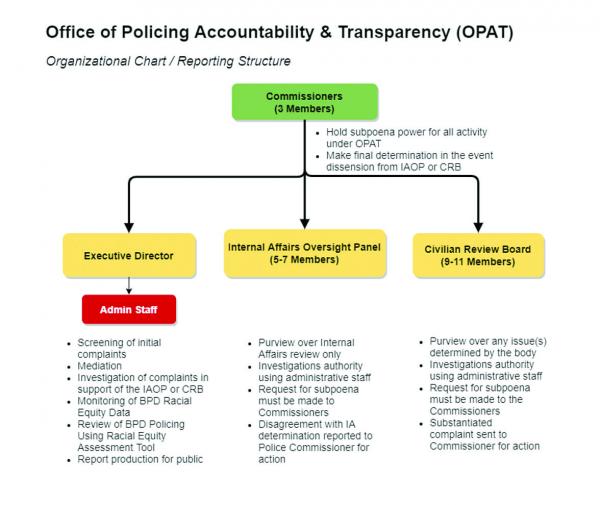September 24, 2020

A board commissioned by Mayor Martin Walsh in June to review BPD policies and procedures turned in a series of recommended reforms last week, among them the setting up of an independent office with broad investigatory and subpoena powers that could review and address civilian complaints and assess policies.
The task force, an 11-person group made up of police, clergy, and activists and chaired by former US Attorney Wayne Budd, suggested that a new “Office of Police Accountability and Transparency” replace the existing Co-Op board, which has been deemed ineffective by critics.
All of the recommendations, which will be translated into five languages, will be reviewed during a two-week public comment period and a public listening session that began on Tuesday. Final measures will then be submitted to the mayor.
“These draft recommendations are the result of months of community engagement, extensive research, and hard work from the members of the task force, and I want to thank each and every person for contributing to this initial version,” Budd said in a statement. “As we continue our work to finalize these recommendations, I urge all Boston residents to read our report, and share your feedback, and be a part of this crucial, important work.”
Other proposals in the 17-page report include: formalization and expansion of the department’s commitment to diversity and inclusion; expansion of the use of the body-worn camera program; enhancement of four use-of-force policies to include clear and enforceable disciplinary actions for any violations; and new data and recording practices that enhance accountability, transparency, and public access to records and data.
“View these recommendations as the floor rather than the ceiling on police reform,” the report reads. “The Task Force had approximately sixty days to research and propose a set of high-level recommendations to the mayor. This period is not sufficient to draft an exhaustive or highly detailed set of recommendations. The BPD and the city must continue to work with the Boston community to develop additional reforms.”
The panel said that in adopting its proposals, it will not be enough “that the mayor approve the Task Force’s recommendations and that the BPD pledge to implement them. The BPD and/or the city must also measure the BPD’s progress and enforce consequences where results are not achieved,” the report states. “To that end, the Task Force recommends that all of its recommendations be accompanied by accountability metrics, develop a clear set of disciplinary consequences, and issue public status updates.”
The commission said that the city and BPD should also analyze the capabilities and expertise of the department and determine where responsibilities could be shifted; develop a culture that prioritizes diversity, equity, and community engagement; and pledge to implement its recommendations without increasing BPD’s budget.
“The time for urgent change is now, and I thank the task force members for their in-depth work, and commitment to holding our city to a higher standard,” Walsh said in a statement. “These initial recommendations will guide how we reform Boston’s police force and strengthen our commitment to community policing. As we finalize this report, we’ll continue to prioritize the voices of our Black and Brown residents, who bear the brunt of the racial injustices embedded in our society.”
BPD Commissioner William Gross also thanked the panel members and said that the department’s mission “is to keep our communities safe, provide opportunities for those who need it, and build trust throughout our neighborhoods. We are committed to ensuring transparency and accountability in the Boston Police Department, and I thank the task force for their work in helping us better serve our communities.”
City Councillor Andrea Campbell, who chairs the council’s committee on Public Safety and Criminal Justice, praised the task force for its work, but said “we need to go even further. This report is a call to action for all city leaders to make sure this time isn’t like the others, when entrenched political forces watered down the reform our policing system desperately needs.”
She added, “It’s up to all of us to pass the bold, politically challenging reforms we need to make all Boston residents feel that their police force is working to keep them safe, and to be unafraid to have the tough conversations about why Black and Brown residents often do not feel protected by police.”
Campbell also said that an ordinance before the council to create a new independent entity charged with reviewing any BPD conduct violations and police contracts should be adopted.
The board, she said, “would create transparency when it comes to publishing data on police stops and arrests, going further to make hiring and promotional practices equitable to increase diversity in all our public safety agencies, demilitarizing our police, and getting serious about reducing police overtime spending to actualize funding reallocation to programs that address root causes of violence – especially after the overtime abuse we’ve recently learned of.
“It’s time for action,” she said.
The Task Force encourages residents to submit written comments or feedback on the initial recommendations, in any language, using the multilingual Google forms contained in the link below. Written comments will be accepted for a two-week period, from Sept. 14 to Sept. 25.
boston.gov/calendar/boston-police-task-force-community-listening-session


